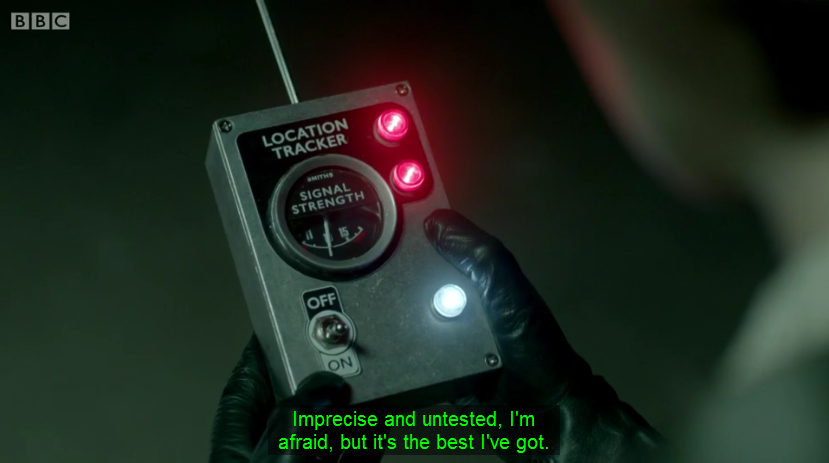The following frame appears in an episode of Partners in Crime, a BBC adaptation of the Agatha Christie novel The Secret Adversary.

Despite being a programme that is very upper-middle-class on everything else (setting, plot, characters), I find this representation of a scientist (okay, wartime bomb expert turned “cool” science teacher*) far more accurate than the usual choice of:
- “mad scientist” whose inventions are fantasmagorical but weirdly work, though with one crucial flaw that will be exploited by the protagonist(s) and prove the villain’s ultimate undoing; or
- scientist in support of the protagonist(s), who is somehow an expert neuro-surgeon AND particle physicist and an all-around genius with a slight whiff of deus ex machina about them when the heroes are stuck in a crisis.
The line of dialogue on screen is true of ongoing scientific research, and the fact that *SPOILER* we never really find out whether or not this thing really worked in the end – Tommy and Tuppence get thwarted during the chase – is (a shame but) quite the more realistic than “happily ever after”.
That will do for now. I have to tend to other work that is driving me mildly insane.
*This is the official character bio on the programme website:
“He lost one of his hands during his work in WWII in the bomb disposal unit, but has since contrived his own mechanical replacement. It was during his recovery in hospital that he first befriended Tommy.
Friendly, quirky and an absolute nut for all things scientific, Albert becomes Tommy and Tuppence’s perfect ally whenever they encounter anything that requires more technical knowledge than they possess. Having found himself slightly side-lined by his disability, Albert finds excitement and redemption in becoming involved in Tommy and Tuppence’s adventures.”
